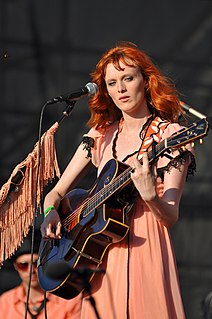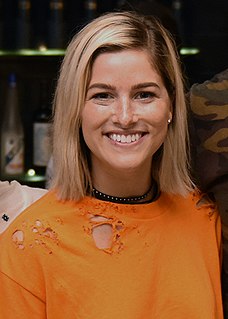A Quote by Tina Brown
I've always been very enamored of European newsmagazines - the 'Spiegel' kind of magazine, which has an energetic, high-low approach to news.
Related Quotes
Not to get too depressing, I've always been a slight whirling dervish in my life. I've always been at once a very spritely and energetic hilarious lady, but at the same time there is an equal dark side that's as comparable to the jovial - constantly walking on the high wire trying to figure out who to be each day.
I was co-editor of the magazine called The Jazz Review, which was a pioneering magazine because it was the only magazine, then or now, in which all the articles were written by musicians, by jazz men. They had been laboring for years under the stereotype that they weren't very articulate except when they picked up their horn.
I think Google's founders are both a couple of guys with some high ideals which have been to some degree reflected in the way the company has been run in terms of its having a very good workplace and good employee programs, and now that they're going public they want in some ways to be able to ensure that that kind of approach continues. So they've effectively put in place this notion of "Don't Be Evil".
What is news? It's hard to quantify. Certainly news has changed completely, and the morning shows are not really designed to bring you the news, except to tell you what happened overnight, and the rest of it is a kind of magazine mentality - a little bit of this, a little bit of that. It's harder to be an educated and informed citizen.
One of my strengths is I have a pretty even temperament. I don't get too high when it's high and I don't get too low when it's low. And what I found during the course of the presidency, and I suppose this is true in life, is that investments and work that you make back here sometimes take a little longer than the 24-hour news cycle to bear fruit.
I'm confused about who the news belongs to. I always have it in my head that if your name's in the news, then the news should be paying you. Because it's your news and they're taking it and selling it as their product. ...If people didn't give the news their news, and if everybody kept their news to themselves, the news wouldn't have any news.
During the Second War, the U.S.O. sent special issues of the principal American magazines to the Armed Forces, with the ads omitted. The men insisted on having the ads back again. Naturally. The ads are by far the best part of any magazine or newspaper. More pains and thought, more wit and art go into the making of an ad than into any prose feature of press or magazine. Ads are news. What is wrong with them is that they are always good news.




































